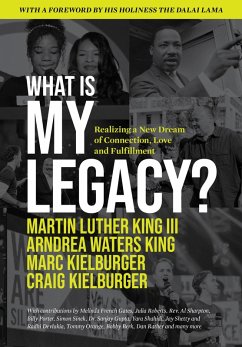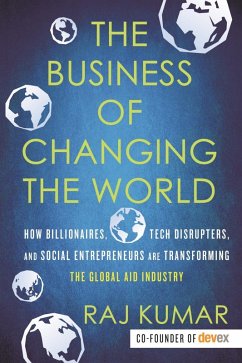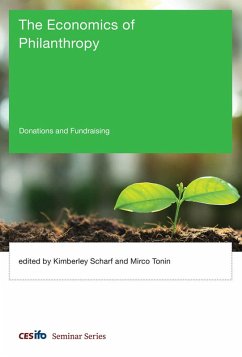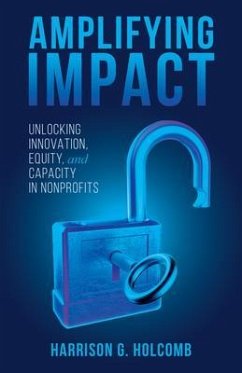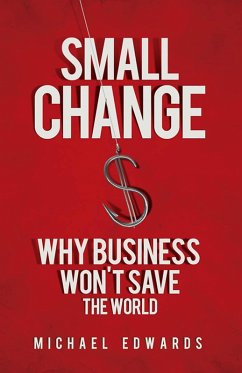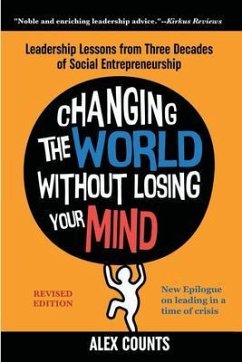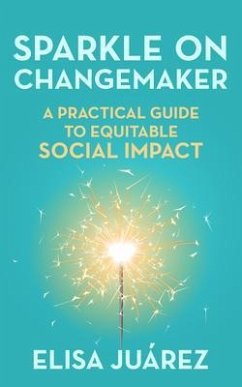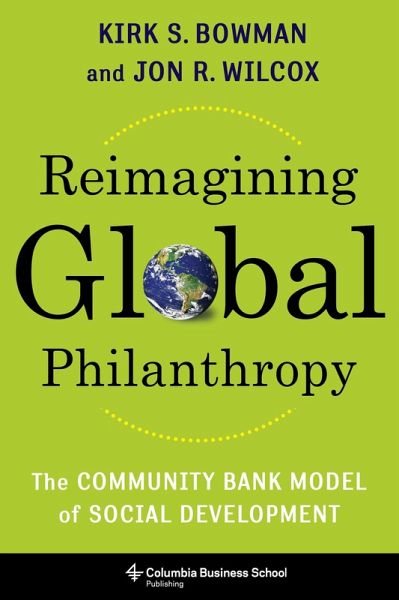
Reimagining Global Philanthropy (eBook, ePUB)
The Community Bank Model of Social Development
Versandkostenfrei!
Sofort per Download lieferbar
13,95 €
inkl. MwSt.
Weitere Ausgaben:

PAYBACK Punkte
7 °P sammeln!
Well-meaning Westerners want to find ways to help the less fortunate. Today, many are not just volunteering abroad and donating to international nonprofits but also advancing innovations and launching projects that aim to be socially transformative. However, often these activities are not efficient ways of helping others, and too many projects cause more harm than good.Reimagining Global Philanthropy shares the journey of a conservative banker and a progressive professor to find a better way forward. Kirk S. Bowman and Jon R. Wilcox explain the boom in the global compassion industry, revealing...
Well-meaning Westerners want to find ways to help the less fortunate. Today, many are not just volunteering abroad and donating to international nonprofits but also advancing innovations and launching projects that aim to be socially transformative. However, often these activities are not efficient ways of helping others, and too many projects cause more harm than good.
Reimagining Global Philanthropy shares the journey of a conservative banker and a progressive professor to find a better way forward. Kirk S. Bowman and Jon R. Wilcox explain the boom in the global compassion industry, revealing the incentives that produce inefficient practices and poor outcomes. Instead of supporting start-up projects with long-shot hopes for success, they argue, we can dramatically improve results by empowering local leaders.
Applying lessons from the success of community banks, Bowman and Wilcox develop and implement a new model that significantly raises philanthropic efficacy. Their straightforward and rigorously tested approach calls for community members to take the lead while outside partners play a supporting role. Bowman and Wilcox recount how they tested the model in Brazil, demonstrating the value of giving people in marginalized communities the opportunity to innovate. In a time of widespread social reckoning, this book shows how global philanthropy can confront its blind spots and failures in order to achieve truly transformative outcomes.
Readers can access five of the documentary films discussed in the book on a companion website. In addition to the films, chapter discussion questions and other supplemental materials are also available at the site.
Reimagining Global Philanthropy shares the journey of a conservative banker and a progressive professor to find a better way forward. Kirk S. Bowman and Jon R. Wilcox explain the boom in the global compassion industry, revealing the incentives that produce inefficient practices and poor outcomes. Instead of supporting start-up projects with long-shot hopes for success, they argue, we can dramatically improve results by empowering local leaders.
Applying lessons from the success of community banks, Bowman and Wilcox develop and implement a new model that significantly raises philanthropic efficacy. Their straightforward and rigorously tested approach calls for community members to take the lead while outside partners play a supporting role. Bowman and Wilcox recount how they tested the model in Brazil, demonstrating the value of giving people in marginalized communities the opportunity to innovate. In a time of widespread social reckoning, this book shows how global philanthropy can confront its blind spots and failures in order to achieve truly transformative outcomes.
Readers can access five of the documentary films discussed in the book on a companion website. In addition to the films, chapter discussion questions and other supplemental materials are also available at the site.
Dieser Download kann aus rechtlichen Gründen nur mit Rechnungsadresse in A, D ausgeliefert werden.




